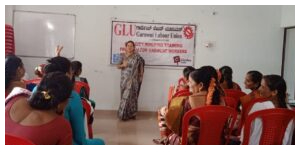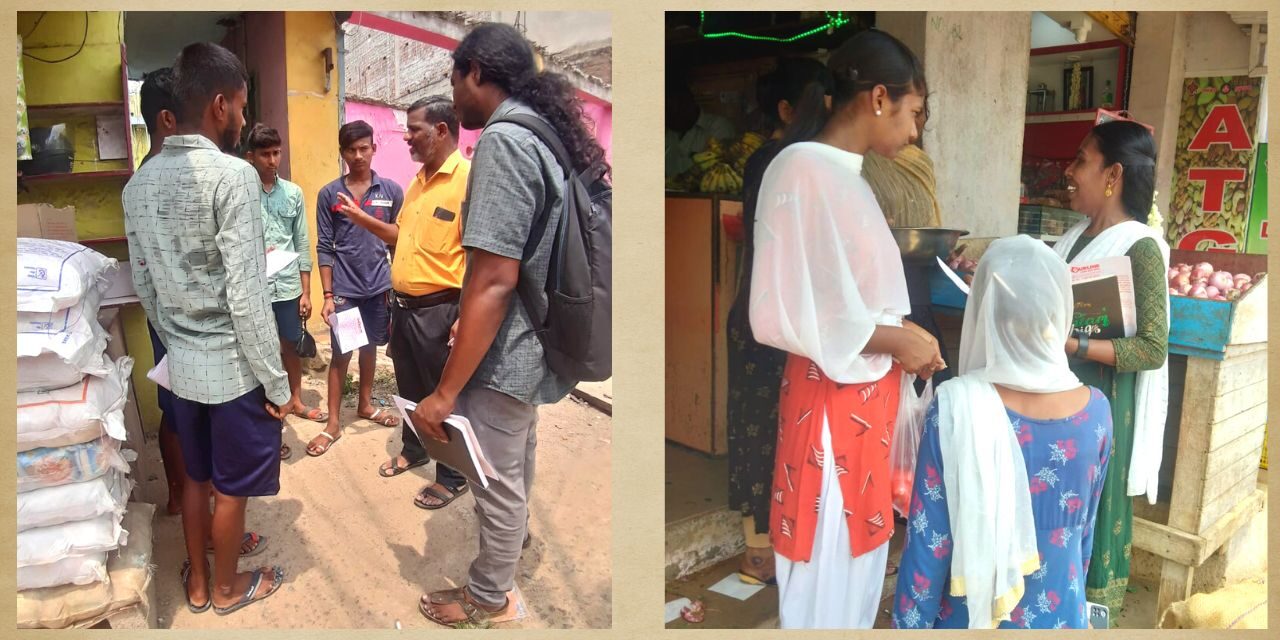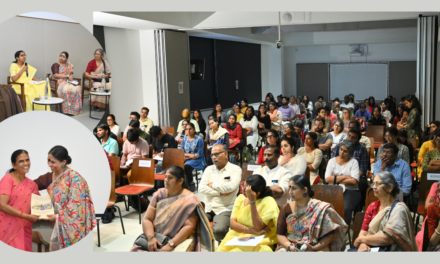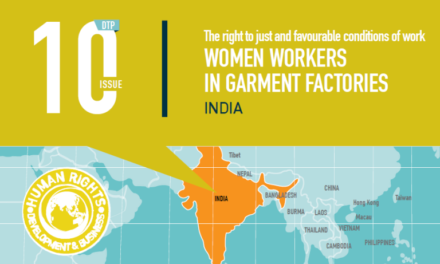A Glance Into The Lives Of Workers With Bite-Sized Stories From Factories, Homes & Communities
On The Case: Cividep recently began running the Tamil Nadu state chapter of the India Labour Line (ILL), a national helpline for informal and migrant workers (1-800-833-9020). The team started by reaching out to workers (seen above) at previously mapped labour hotspots – from bus stops and tea shops to general provision stores – in Sunguvarchattram and Sriperumbudur near Chennai. The team had readied enough communication material – leaflets and contact cards translated into Tamil and Hindi after suitable modifications. They told workers about the aim of the helpline – to provide information on basic entitlements, free legal aid and mediation services. Soon enough, the cases started trickling in. Two cases of wage theft were registered on the spot in Sunguvarchattram. With the opening of the ILL Chennai office in Valasaravakkam, the team is hoping to reach out to more workers in and around the city. (Read to know more about Cividep’s ILL work.)
12-hour Workday Worries: It wasn’t just pamphlets that field officers distributed outside factory gates as part of their regular ‘gate’ meetings with Bengaluru’s garment workers. They also talked to workers about the various implications of the Factories (Karnataka Amendment) Bill, 2023. Workers told field officer Manjula that 8-hour workdays are challenging as they struggle to manage work at homes and factories. In addition, they have overtime work that leads to late departure from factories and inadequate overtime wages. The proposed extension to 12-hour workdays is deemed impossible by workers due to their responsibilities in caring for small children, and health concerns.
A Quest for Fairness: Meet Monica (name changed), a 24-year-old worker with three years of intermittent experience at an electronics company near Chennai. In early 2023, Monica was promised by both her contract supervisor and line supervisor that she would be made a permanent employee. However, her journey took a detour when she fell ill in March, needing three consecutive days of leave. Unfortunately, the company and its associated contract agencies engage in unfairly terminating workers who take more than two days of leave, only to rehire them under new contracts. Upon her return, Monica was once again assured by the contract supervisor that she would become a permanent employee within a month. However, her hopes were dashed when she contracted chickenpox last month, requiring extended leave. When she inquired about the status of her job, the contract supervisor was ambiguous: “You will have to rejoin again. I am not sure whether you will be made permanent.”
Whose Word Is To Be Taken? : Cividep’s Ambur team were in a fix recently – the reason being a friendly factory visit to a local shoe factory. Along with several project partners from other organisations, the team visited the local production unit of a global leather shoe brand at the invitation of their CEO. While the factory manager waxed eloquently about the unit’s history, values, good working conditions, and its compliance with labour laws, the workers had a different story to share. When the team spoke privately to members of the factory’s Worker Committees, they revealed that they were not given any paid leave, and had had their bonuses reduced. The team eventually decided to hold another meeting with the CEO to share their observations and feedback.

Info Drives: Several informative workshops that covered POSH Act and labour law were organised by Cividep’s partner organisations to address crucial aspects of worker rights and well-being. GLU’s POSH Act workshop was facilitated by worker leaders and was attended by 30 women garment workers from various factories. The session also touched upon grievance mechanisms to address workplace harassment, which is very high in the industry. At the labour law workshop organized by Sadhana, 25 workers got to know more about Maternity Benefit Act, Provident Fund Act, and ESI Act. The workshop also provided a space to workers to have conversations. “We got to share our experiences and get support from each other,’ said a worker from Peenya. (In pic: Workers take part in POSH Act workshop)
Summer Lessons: Summer is when families travel to hometowns and hill stations. However, not all families can afford such breaks. Children from lower-income backgrounds often spend time watching TV or assisting their parents during their school break. This summer, Cividep held computer training sessions for children of home-based workers. The young learners displayed keen interest in exploring various applications. Six training sessions were organised in April and May, enabling them to acquire skills in using MS Office.
Images: Nandhini K., Gokhuaraj R. , Pramod
Text: Gokhularaj R, Pramod Kumar, Kohila Senbagam





